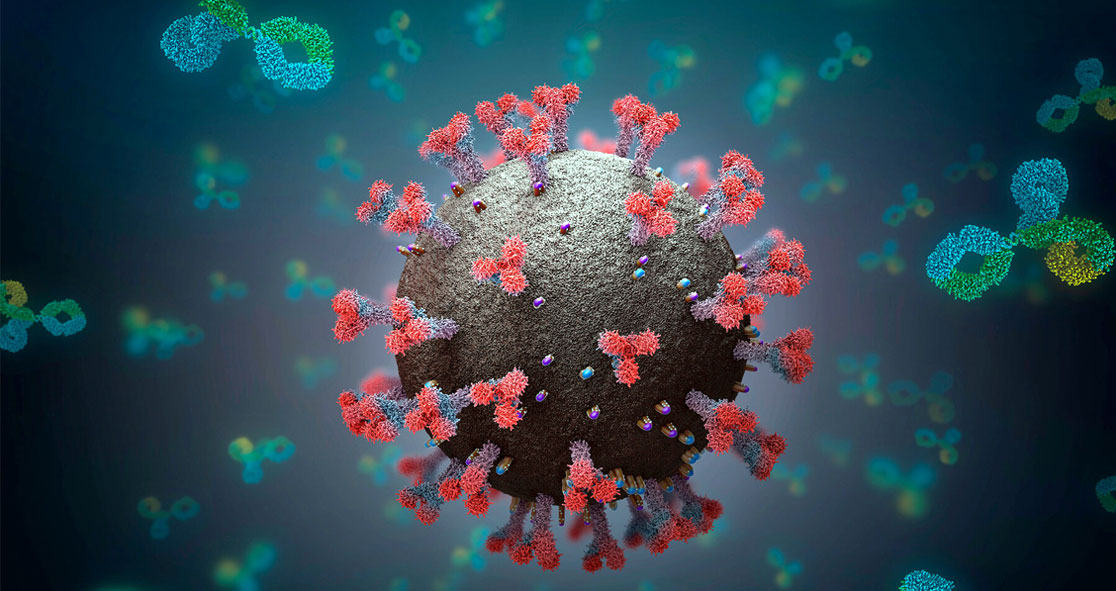A study conducted by the researchers at Washington University School of Medicine in St. Louis has identified an antibody that is highly protective against a wide range of COVID-19 variants, according to Medical Xpress.
In fact, the researchers found that the antibody gets attached to a part of the virus that differs little across the variants, which means it is unlikely for resistance to arise at this spot.
The findings, published online in the journal Immunity, could help develop new antibody-based therapies that are less likely to lose their efficacy as the virus undergoes mutation.
Senior author of the study Dr. Michael Diamond said, “Current antibodies may work against some but not all variants. The virus will likely continue to evolve over time and space. Having broadly neutralizing, effective antibodies that work individually and can be paired to make new combinations will likely prevent resistance.”
The novel coronavirus uses a protein called “spike” to invade or attach to cells in the respiratory tract. Antibodies neutralize the virus and prevent disease. However, many strains have acquired mutations in their spike genes, allowing them to evade some antibodies generated against the original strain.
In the current study, the researchers began by immunizing mice with a key part of the spike protein known as the receptor-binding domain, per Medical Xpress. They then extracted antibody-producing cells and obtained 43 antibodies from them that recognize the receptor-binding domain.
Of those 43 antibodies, the researchers selected the two antibodies that were most effective at protecting mice from disease and tested them against the new variants.
One antibody, called SARS2-38, was found to be effective in neutralizing all the variants. Moreover, a human version of SARS2-38 protected mice against disease caused by two variants: kappa and beta.
The researchers noted that the beta variant is notoriously resistant to antibodies, so its inability to resist SARS2-38 is particularly remarkable.
Dr. Diamond said, “This antibody is both highly neutralizing (meaning it works very well at low concentrations) and broadly neutralizing (meaning it works against all variants).”
“That’s an unusual and very desirable combination for an antibody. Also, it binds to a unique spot on the spike protein that isn’t targeted by other antibodies under development,” he added. “That’s great for combination therapy. We could start thinking about combining this antibody with another one that binds somewhere else to create a combination therapy that would be very difficult for the virus to resist.”























